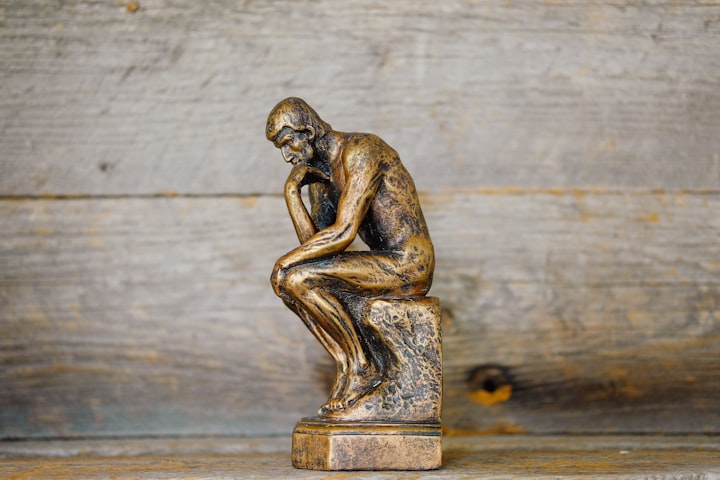What One Glass of Wine Does to Your Brain
Ever wonder what wine does to your brain? Even with a single glass of the good stuff, the effects are pretty surprising.

Wine has a lot of health benefits that people like to tout, but at times, one has to ask whether or not it's actually as good for you as you'd think. Though red wine may have great benefits involving resveratrol, stress reduction, and heart health, it doesn't always affect you in good ways.
The jury is still out on the benefits of a lot of substances we put in our body, with wine being one of the most debated. Though we drink wine regularly, we still don't fully know how it impacts our bodies.
This is especially true when it comes to your brain's health. Don't believe it? Here's what scientists say a single daily glass of wine does to your brain.
A single daily glass raises your risk of dementia and messes with your ability to determine distance.
A study performed by researchers from the British Medical Journalshowed that drinking as little as a single 5-ounce glass of red wine can cause damage to right-sided hippocampus. This area is the part of your brain that affects your ability to tell distance and movement.
Studies have shown that damage to this part of your brain puts you at a much higher risk for Alzheimer's and dementia. The same study also noted that people who drank a glass daily also had a harder time recalling words or even thinking clearly after 30 years of the habit.
Everyone was aware that there is some damage that wine does to your brain, especially with memory loss. However, seeing this study on brain damage would make most people think twice about casual drinking.
On the other hand, a Spanish study suggested something beneficial.
If you suffer from depression, then maybe lifting up a glass could help you feel a bit better—as long as it's just one glass per day. Spanish scientists discovered people who drank 2 to 7 glasses of wine per week were at less risk for depression than nondrinkers.
Despite the study's findings, the standard advice still remains to avoid drinking wine if you have depression. After all, wine is a depressant that can make mental health worse.
Other scientists have found benefits to memory that stem from a single glass of wine per day.

Though the study from BMJ may be pretty ominous, you shouldn't put down your glasses quite yet. Multiple studies showed that a single glass of red wine can help reduce the risk of memory loss over the years. Scientists often ascribe this to wine's anti-inflammatory qualities.
Red wine, in particular, has high levels of polyphenols. These are chemicals that have been clinically proven to block plaque formation in the brain—and therefore could be used to fight and prevent Alzheimer's.
Doctors seem to agree that one to three glasses per week is a good way to get those benefits. So, perhaps what wine does to your brain isn't so bad all the time.
Red wine, by the way, is one of the healthiest wines out there. If you're not a fan of red, don't worry. The health benefits of champagne include better cognitive abilities, too.
A single glass of wine can lower sleep quality, though.
One of the more immediate effects of wine is that it often makes us sleepy, which is why a lot of people drink wine before bed. This isn't wise, though. A study done in 2009 showed that drinking wine tends to cause difficulty in attaining a nice, deep sleep.
If you drink wine as a nightcap, this might be why you have so many mornings where you feel groggy and listless. That's what happens when you have a bad night's rest.
A single glass of wine can also send false hunger signals to the brain.
Ever notice how drinking wine gets you hungry? You're not alone in that. Wine makes your blood sugar levels fluctuate, which in turn sends signals to your brain that make you feel hungry, even though you might not actually be.
Wine is a pretty calorie-filled drink, which is bad enough on its own. Add in the "drunchies" you can get, and you can see why a lot of people gain weight, even when they choose low-calorie cocktails that feature wine.
Wine can potentially help you reduce risks of stroke.
Thankfully, there are some good things wine does to your brain—even with a single glass. Studies show that wine acts like a blood thinner and breaks up blood clots fairly well.
The most dangerous blood clots are in your brain, and if a clot occurs, it can cause a lethal stroke. Knowing that wine prevents blood clots, it's pretty clear that wine can potentially reduce your risk of a stroke.
A single glass of wine can temporarily affect your peripheral vision.

Wine hits your brain like a tidal wave. A single glass has been proven to affect the part of your brain that works with peripheral vision. What's really amazing about this is that this symptom is one of the first stages of being drunk—and that it can occur before the wine even makes its way to the back of your brain stem.
Another thing that happens when you drink a glass of wine is inhibition suppression—but it's temporary.
You know how getting drunk is called "liquid confidence?" Studies show there's some truth to that. Drinking as little as half a glass of wine can inhibit function in the parts of your brain that help with self-control.
That's why you tend to feel less inhibited after you drink a glass or two at parties. It reduces your ability to inhibit your urges, and that aspect of being drunk continues to get stronger the more you drink. What wine does to your brain can cause you to have a lot of explaining to do the next morning.
Lastly, wine can also make you more creative.
Studies showed that people tend to become more creative after a glass of wine or a mug of beer when compared to non-drinkers. That's why productivity experts agree that the best drink for people who need to come up with ideas is alcohol—within limits, of course.
Overall, it's best to limit your drinking.
We don't know the full story of what wine does to your brain and body—but it's pretty clear that drinking too much of the stuff really isn't that good for you. If you want to keep your brain health at its peak, limiting yourself to a single glass every two to three days is a good way to go.
About the Creator
Rowan Marley
Rowan Marley is a 20-year-old sports enthusiast who hails from Brooklyn. When he's not hitting up a local Zumba class, he's drinking organic smoothies. That's just how he rolls.






Comments
There are no comments for this story
Be the first to respond and start the conversation.